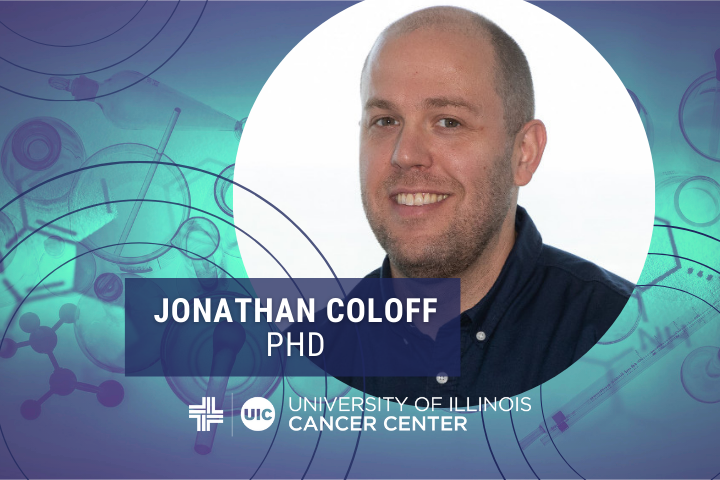
University of Illinois Cancer Center member Jonathan Coloff and colleagues have discovered that luminal breast cancer cells are dependent on serine from external sources, a finding that could offer a potential treatment approach for recurrent hormone positive breast cancer. Coloff and his colleagues published their findings in Cell Reports.
Coloff, PhD, assistant professor of physiology and biophysics at the University of Illinois College of Medicine and member of the Cancer Center’s Cancer Biology program, is a recipient of a Cancer Center Pilot Project Grant that led to a 2021 Method to Extend Research in Time (MERIT) R37 grant from the National Cancer Institute (NCI). The award is similar to an R01 grant but provides up to seven years of financial assistance to Early Stage Investigators who receive high scores on R01 applications.
Coloff’s lab is investigating serine deprivation as a vulnerability of luminal breast cancer with the initial five year $2.17 million award. In its first publication since the R37 award, the research team found that luminal breast cancer cells express low levels of a gene called phosphoserine aminotransferase 1 (PSAT1). Low PSAT1 activity prevents breast cancer cells from making their own serine, thereby making them more dependent on external serine for growth. Phosphoserine aminotransferase 1 expression is reduced in luminal breast cancer cells because the PSAT1 gene is methylated, the study found.
Despite a generally favorable initial prognosis for many luminal breast cancer patients, a large number eventually develop resistance to endocrine therapy and other commonly used treatments. Fewer options exist for recurrences of ER+ breast cancer, and Coloff’s lab is investigating whether interventions such as a serine-free diet or other means of serine starvation could potentially benefit patients.
